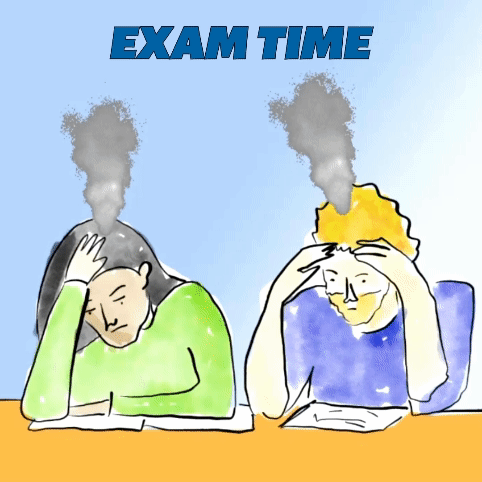Exams are an essential part of the life of students. Some question what use they have in a future professional setting. Interestingly, they might be the key to some basic job skills.
Libraries are full of focused students, notebooks present neat summaries of a semester-worth of information, the air smells of stress and caffeine… With the semester coming to an end, many students have to prove what they have learned through an old method: answering questions posed to them by their teachers. To succeed, students need to both know the material and be able to present this knowledge in the right form and in a give time. Although this method is present from primary school until PhD courses, it is not present in most professional settings.
Although most professionals are not examined regularly, many of the skills one develops while preparing for an exam are critical to successfully start a career.
Summaries Help the Résumé
Many physics students will end up working in the knowledge economy, in fields such as research, technical support, and consulting. There, they will need to process a lot of information and be able to use and present it properly. The same skills, which are needed in preparing an understandable diagram laying out a complex topic for an exam, are needed in preparing a technical description for a client.
Hard Questions Are Forever
Not only is understanding complex ideas a basic skill in the knowledge economy, but also implementing them in different contexts. When physics students are faced with a tough task in an exam, they are practicing a skill they will most likely use in their careers. This is done in two steps: understanding what learned knowledge can tackle the problem and working with it to solve it.
Learning to Tame Time
Time management is a basic skill for professionals. Before entering the workforce, exams are one of the few situations in which students can experience the importance of good time management. Or, at times, the consequences of poor planning.
Planning weeks in advance to achieve an objective, investing time into a topic or assessing if the goals will be reached in a particular timeframe. All of these, more or less consciously, are skills that are being practiced right now by many of the students preparing for exams. Once they start their professional careers, they will profit greatly from having done so.
Facing and Dealing with Stress
Around a 25% of employees in Austria report to work in stressful situations often. Many students also feel this weight. While preparing for exams, students can discover ways of dealing with the pressure, which they can then use in a professional context. Learning how to enhance resilience can have many positive effects in the future careers of students.
After this overview of the different skills acquired while studying, we just want to wish luck and strength to all the students facing their final tests!
